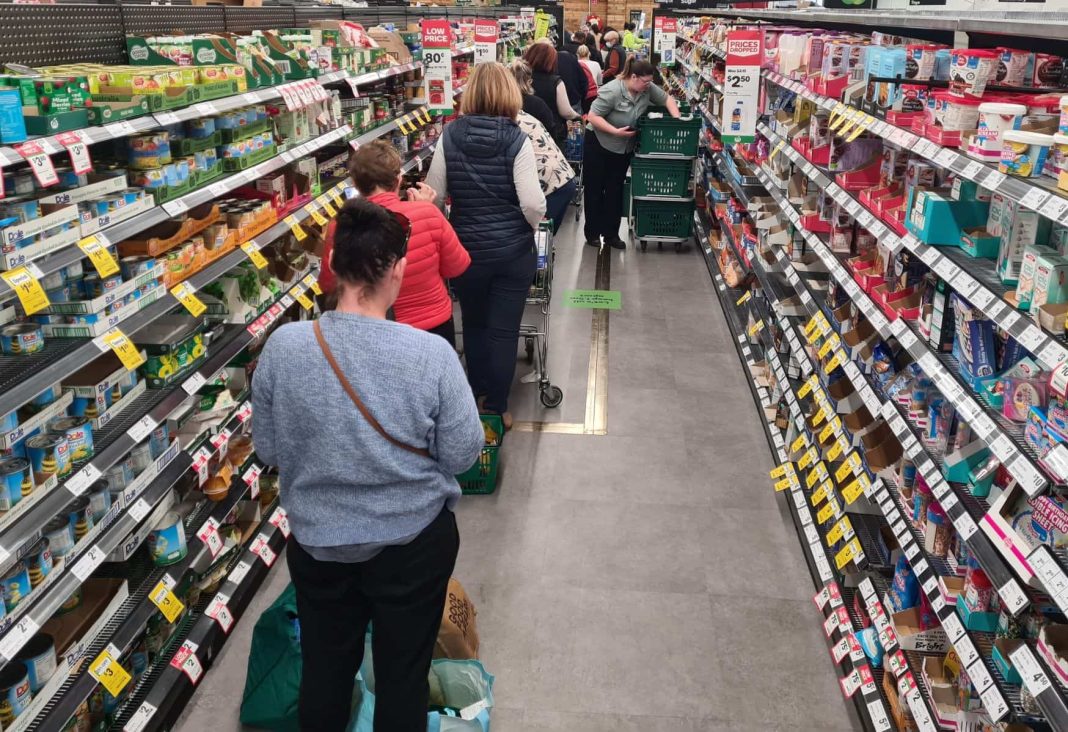Canberrans living on low incomes are being hit hardest by the biggest increase in cost of living in over 20 years. Far from sharing in an economic and community recovery, more people are seeking support from ACT community sector organisations due to the rising cost of living and declining income support.
These are among the stark findings of the 2022 ACT Cost of Living Report released today by the ACT Council of Social Service (ACTCOSS).
In the lead up to the 2022 Federal Election, ACTCOSS is calling on all ACT candidates to back key measures needed to be implemented by the next Federal Parliament to help all Canberrans to afford the essentials for a healthy and dignified life.
ACTCOSS Deputy CEO, Mr Adam Poulter said: “In March 2022, the CPI recorded its largest annual rise since the year 2000. This week, the RBA Governor said inflation is expected to rise even further this year. Over the past 12 months, Canberra’s community organisations have seen demand for support increase as households have struggled to stretch declining budgets to cover the rising costs of the basics.
“Over two thirds of community sector staff reported that in the past year, levels of poverty and disadvantage had increased among the groups they support.”
Jeremy Halcrow, CEO of Anglicare NSW South/ACT, said there is very high demand for emergency assistance with Anglicare’s crisis and relief services in the ACT seeing more people who are fulltime workers.
“People are having to make hard choices between rent, bills and putting food on the table. This is putting huge pressure on services. In fact, Anglicare in Canberra only has four weeks of food left at our warehouse for relief hampers and we are concerned about running out prior to winter.”
The 2022 ACT Cost of Living Report shows that low-income households have been impacted the most by significant increases in the prices of essential goods and services in the ACT. Analysis of Canberra CPI data shows that over the past five years:
- Automotive fuel prices increased by 35%
- Electricity prices increased by 28%
- Gas prices increased by 24%
- Medical and hospital services prices increased by 21%
- Housing prices increased by 19%
- Education prices increased by 17%; and
- Meat and seafood prices increased by 16%.
“The sharp rise in the cost of living over the past 12 months coincided with the removal of temporary boosts to income support that had lifted thousands of Canberrans out of poverty during the initial phase of the COVID-19 pandemic,” Mr Poulter said. “It is estimated that since the phasing out of JobKeeper and the Coronavirus Supplement, the number of Canberrans living below the poverty line increased above 38,000 people, including 9,000 children.
“Compared to a year ago, a single person on JobSeeker is receiving $93 less each week and living on just $46 a day. Their weekly income is now $138 below the poverty line. For a young person looking for work on Youth Allowance, their weekly income is now almost $200 below the poverty line.
“As called for by the Raise the Rate for Good campaign, we need the next Federal Parliament to raise the rate of working age payments to at least $70 a day so that everyone has enough to cover the basics while going through tough times.”
Hassan Riaz, from the ANU Students Association said the report confirmed the ground reality that the swelling rents and inadequate income support are hitting the most vulnerable Canberrans the hardest.
“The time for the ACT and the Commonwealth government to act is now.”
The 2022 ACT Cost of Living Report also shows that amidst the ACT’s housing affordability crisis, Commonwealth Rent Assistance (CRA) is failing to protect most recipients from experiencing housing stress.
“The ACT has the highest proportion of CRA recipients receiving the maximum rate, and the highest proportion of recipients experiencing rental stress at 55%,” Mr Poulter said. “We need to see Commonwealth Rent Assistance increased by 50%.
“Canberra remains the most expensive capital city to rent a house or a unit and the ACT has the highest rate of rental stress among low-income private renters. Alongside a chronic lack of affordable private rental properties, the ACT has a shortage of over 5,500 social and affordable housing dwellings.
“As highlighted by the Everybody’s Home campaign, the next Federal Government needs to deliver a 25,000 dwelling per year social and affordable housing package to reduce homelessness and kick-start housing construction and growth in jobs and incomes. This needs to be done in partnership with the ACT Government to deliver an estimated annual need of almost 600 additional social and affordable homes in the ACT.
“Addressing our housing affordability crisis will be a major focus for ACTCOSS in the lead up to the 2022-23 ACT Budget in August. We will be calling on the ACT Government to take action across a range of cost-of-living issues, including housing, transport, health, and utilities,” Mr Poulter said.
“As we look towards the 2022 Federal Election and the 2022-23 ACT Budget, we need commitments and cooperation from both levels of government to an economic and community recovery for all. One that is built upon a vision of a fairer and resilient community – a community that is ready to face the challenges of poverty, inequality and climate change to forge a more just and sustainable future for Canberra and the nation.”
More to come.



